All Emergency Room Services
Whether it’s a broken bone, high fever or a more severe medical emergency like a heart attack, we are ready to pro...
Find out what constitutes a medical emergency and when you should visit an emergency room or ER.
Come to our hospital knowing that we do everything possible to keep patients and staff safe.
Saint Vincent Hospital provides helpful emergency health articles and tips to keep you in the know on trending topics, c...
5 Back Pain Emergencies
Lower back pain is one of the major causes of disability worldwide. In fact, the American Association of Neurological Surgeons says that 75-85% of Americans experience back pain in their lifetime. Back pain usually results from a problem in one or more parts of the lower back, including the muscles, nerves, ligaments and the spine.
Most cases of back pain are acute or short-term and may last for several days to a few weeks. Others develop chronic back pain which may continue for at least three months, sometimes even after treatment. Meanwhile, there are also back pain emergencies that require immediate care and at times, surgery. Here are some of their symptoms:
Common Symptoms of Back Pain Emergencies
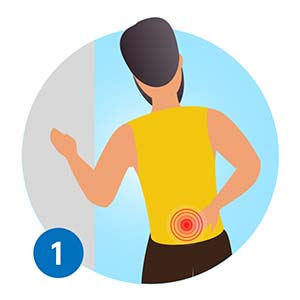 Severe back pain |
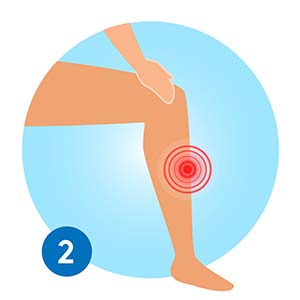 Weakness in limbs |
 Lack of bladder or bowel control |
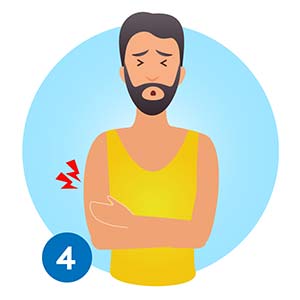 Sharp pain in arms or legs |
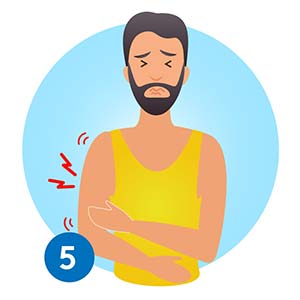 Numbness or tingling in different parts of the body |
Types of Back Pain Emergencies
If you experience any of the abovementioned symptoms, your condition may be related to any the following back pain emergencies.
1. Spinal Fracture
Spinal fractures are caused by accidents or high-energy trauma. One of its initial symptoms is severe back pain that gets worse with movement. If the nerves and/or the spinal cord are involved in the fracture, the person may also experience bladder or bowel dysfunction, tingling, weakness in the limbs and numbness.
2. Cauda Equina Syndrome (CES)
Cauda equina (the Latin word for hose’s tail) is the bundle of spinal nerves at the end of the spinal cord. CES occurs due to spinal nerve compression which also disturbs the sensory and motor function of the bladder and lower extremities. At its worst, CES may lead to permanent paralysis. Symptoms of CES include severe low back pain, motor weakness, pain in one or both legs, sensory loss, inability to feel anything in body parts that sit on a saddle, urinary or bowel incontinence, sensory abnormalities in the bladder or rectum and loss of reflexes in the extremities.
3. Severe Herniated Disc
Bones in the spine are cushioned by round discs that serve as shock absorbers. Sudden injury and/or excessive strain may cause the inner portion of the disc to stick out through the outer ring which is called a herniated (ruptured or slipped) disc. The severe case of a herniated disk is a medical emergency because of intolerable pain and discomfort. Some of its symptoms include lower back pain, sharp leg or arm pain, loss of bladder or bowel control and numbness, weakness or tingling sensation in the foot and/or leg.
4. Metastatic Spinal Cord Compression (MSCC)
Metastatic spinal cord compression (MSCC) is a complication of cancer that often requires emergency care. It happens when the cancer cells spread in or near the spine and press onto the spinal cord. One of its symptoms is severe back or neck pain that may worsen when you sneeze, lie down, cough, go to the toilet or lift. Other symptoms include arm and/or leg pain, difficulty in controlling your bowel or bladder, chest or abdomen pain and numbness or tingling in different parts of the body. When left untreated, MSCC may lead to paralysis.
5. Vertebral Osteomyelitis
Vertebral osteomyelitis is the most common kind of spinal infection which can be caused by spinal trauma and/or bacterial or fungal infection that spread from the blood. The inflammatory reaction may involve and destruct the cortex, bone marrow and other anatomical structures. Aside from severe back pain, the symptoms of this condition include fever, chills, weight loss, urination difficulties, muscle spasms, bowl and/or bladder incontinence and weakness and/or numbness of the legs or arms.
Final Thoughts
Back pain emergencies may be rare, but when they happen, be sure to call 911 immediately to get the treatment you need as soon as possible. Do not downplay your pain as our ER specialists and staff are ready to give excellent, compassionate emergency care 24/7.
On the other hand, if you need to consult an orthopedic doctor for a pre-existing chronic condition or for initial diagnosis, please click the button below to find a doctor and schedule an appointment.
Sources:
World Health Organization
Healthline
National Library of Medicine
American Association of Neurological Surgeons
American Academy of Orthopedic Surgeons
Emory University School of Medicine
University of Utah Health

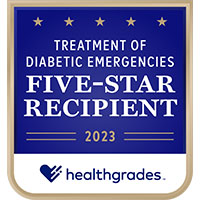 The Emergency Room (ER) at Saint Vincent Hospital provides you with access to nationally renowned experts in emergency medicine, toxicology, cardiac problems, trauma, and more when you need them most. At the Saint Vincent Hospital Emergency Room, you’ll find:
The Emergency Room (ER) at Saint Vincent Hospital provides you with access to nationally renowned experts in emergency medicine, toxicology, cardiac problems, trauma, and more when you need them most. At the Saint Vincent Hospital Emergency Room, you’ll find: